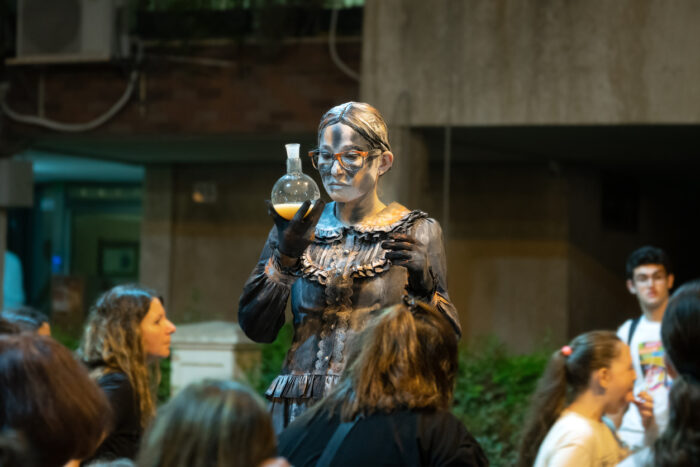Advocating for patient safety and accountability is at the core of my practice as a medical negligence solicitor. But today, I want to take a step back and celebrate the tremendous contributions that women have made to healthcare—both historically and in the present day. These women have not only shaped the trajectory of medicine but have also paved the way for future generations of female healthcare professionals. In this article, in honour of International Women’s Day 2025, I will highlight the incredible achievements of a few women whose work continues to inspire, improve patient safety, and fundamentally change the way we approach medicine.
Donna Ockenden: Leading the charge for patient safety
In the UK, the name Donna Ockenden has become synonymous with patient safety and maternal healthcare. As the lead investigator of the Independent Review of Maternity Services at the Shrewsbury and Telford Hospital Trust, Donna has courageously highlighted the systemic failures in the NHS that led to unnecessary suffering and loss of life for both mothers and babies. Her work has been instrumental in bringing much-needed attention to the importance of learning from past mistakes to prevent future tragedies.
Donna Ockenden’s efforts underscore the importance of accountability and transparency in healthcare. By advocating for comprehensive reviews of medical systems and pushing for meaningful reforms, she has contributed to the continued evolution of patient safety in the NHS. Through her tireless work, she has shown us how essential it is to listen to patients’ voices and take action when mistakes happen.
Elizabeth Blackwell: The first female doctor in the United States
Elizabeth Blackwell made history in 1849 when she became the first woman to receive a medical degree in the United States. At a time when women were often barred from higher education, let alone a career in medicine, her achievement was ground-breaking.
Her perseverance in the face of adversity opened the doors for women to enter the medical profession and challenged societal norms about what women could accomplish.
Mary Putnam Jacobi: Breaking myths, empowering women
Mary Putnam Jacobi was not just a renowned physician; she was a pioneer in challenging medical misconceptions, particularly surrounding women’s health. In the 19th century, the prevailing medical belief was that menstruation caused women to be physically and mentally weak. Jacobi, a physician and a champion of women’s health, used scientific research to debunk this dangerous myth, publishing a paper that demonstrated the normalcy of menstruation and its lack of impact on women’s physical strength.
Her work played a pivotal role in dismantling harmful stereotypes about women’s health and improving patient safety by ensuring women were treated with respect, dignity, and evidence-based care. By challenging the status quo, Jacobi not only advanced the understanding of women’s health but also laid the groundwork for future generations of women to engage fully in medical practice and research.
Marie Curie: A legacy of innovation in cancer treatment and X-rays
Marie Curie’s contributions to science and medicine are nothing short of legendary. As the first woman to win a Nobel Prize and the only person to win Nobel Prizes in two different scientific fields (Physics and Chemistry), Curie’s pioneering work in radioactivity revolutionised cancer treatment and medical diagnostics.
Curie’s discoveries led directly to the development of X-ray machines, which have since become an essential tool in diagnosing and treating patients. During World War I, Curie also established mobile radiography units, known as “Little Curies,” to assist in battlefield medical care, saving countless lives. Her work has had an enduring impact on both the safety and effectiveness of medical practices, particularly in the realm of diagnostics and treatment of cancer.
Dr Virginia Apgar: The standard for newborn care
Dr. Virginia Apgar, an American physician and obstetrical anaesthetist, created the Apgar Score in 1952, a quick and effective method for assessing the health of newborns immediately after birth. Her work in neonatal care has saved millions of lives by providing doctors with a simple, effective tool to identify babies who may require immediate medical attention.
The Apgar Score remains one of the most widely used and recognised methods for evaluating infant health, particularly in the early moments of life when immediate intervention can make all the difference. Apgar’s lasting legacy lies in her ability to elevate the standard of care for newborns and improve patient safety in the most vulnerable stage of life.
Gertrude Belle Elion: Innovating life-saving treatments
Gertrude Belle Elion’s work in pharmacology and drug development has had an immeasurable impact on the treatment of numerous diseases, including leukaemia, HIV/AIDS, and gout. Alongside her scientific partner, Dr George Hitchings, Elion helped to develop a variety of drugs that have saved countless lives, including the first effective treatments for leukaemia. Her novel approach to drug development, which focused on targeting specific molecules involved in disease processes, revolutionised the field of medicine.
Elion’s achievements were recognised with the Nobel Prize in Physiology or Medicine in 1988, but her work has extended far beyond her lifetime. Her legacy is one of innovation, precision, and a relentless commitment to improving patient safety through the development of effective treatments for previously untreatable conditions.
Honouring their legacies
The contributions of these remarkable women have fundamentally reshaped the landscape of healthcare, improving patient safety and ensuring better outcomes for millions of individuals around the world. From Elizabeth Blackwell’s achievement as the first female doctor to Marie Curie’s incredible work with X-rays, these women have proven time and again that their dedication, intelligence, and passion for medicine can transform the way we think about health and wellness.
As a medical negligence solicitor, I am reminded daily of how far we have come in patient care and safety, and the immense responsibility we have to continue the work that these women started. Their legacies serve as a testament to the power of breaking barriers and pushing for change—an inspiration to all who work within healthcare and beyond. Through their innovation, determination, and compassion, they have made the world a safer place for patients everywhere.
Let us continue to honour their achievements and work toward a future where all patients, regardless of their background or gender, receive the highest standard of care.



